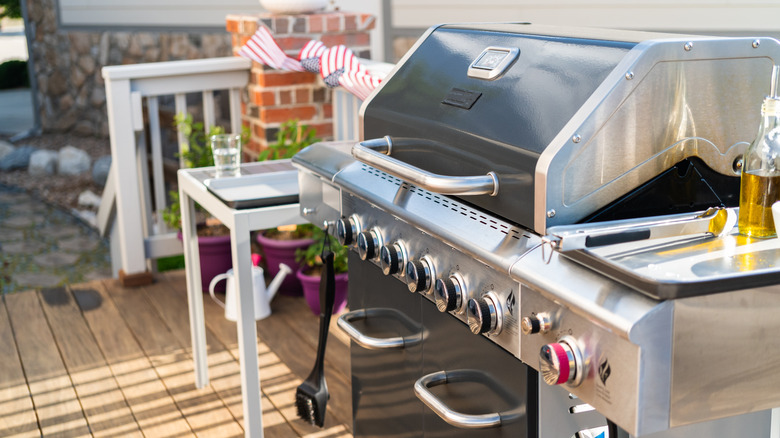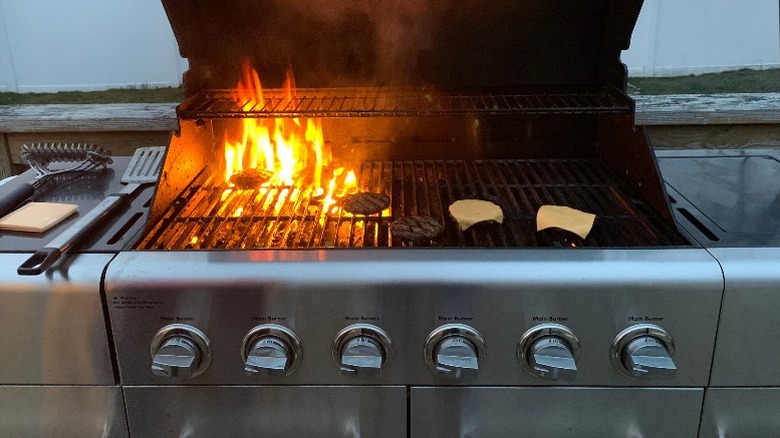The Real Difference Between Propane Grills And Gas Grills
In his 1974 book "Beard on Food," chef James Beard wrote, "Grilling, broiling, barbecuing — whatever you want to call it — is an art, not just a matter of building a pyre and throwing on a piece of meat as a sacrifice to the gods of the stomach." We couldn't agree more, and in order to delve into the art of grilling, it's important that grill master-artists are equipped with the right tool for the job.
There's an entire storybook of grilling myths in circulation around the homecook world, and the question of which type of grill is better is one of them. Per grill aficionado Food Fire Friends, three propane grills are typically sold for every one natural gas grill. But recently, it says, natural gas grills have been rising in popularity: the split is closer to 60/40 for today's backyard barbecuers. Either way, be sure not to get your lines crossed. Whether you pick a natural gas (NG) or a propane (LP) grill, don't use the fuel sources interchangeably, BBQGuys warns.
According to the barbecue pros at Broil King, there is no real difference at all in the performance capability of propane versus gas grills. So, what's the real difference between them, after all? The answer might be simpler than you think – you'll have the wisdom of a professional grill master before your meat can finish marinating.
Propane vs. gas: it's all about convenience
The true difference, says Broil King, comes down to convenience. When choosing which type of grill is right for you, Broil King advises grill masters to keep in mind whichever fuel source will be cheaper and more accessible for you. In the U.S., 42% of homes were heated by natural gas in 2020 (down 16% from 2015), according to the U.S. Energy Information Administration (EIA). If your home falls under that category, a gas grill is likely to be the more convenient option. Plus, with natural gas, your power source never runs out; propane tanks need to be refilled and replaced, and can empty mid-cook.
A 20-gallon propane tank costs around $35 out the gate, per HomeGuide, with a $3-$4 refill per gallon, via the New York State Energy Research and Development Authority (NYSERDA). Natural gas, says NYSERDA, costs around $13 per thousand cubic feet (or, per 10.37 therms, says the EIA). For reference, one therm is equivalent to 1.1 gallons of propane, via AmeriGas. This makes natural gas the slightly cheaper option but, considering propane tanks can be transported to barbecues in the park or the campground, natural gas might be less convenient.
Also, unless your household happens to be part of the 42% already fueled by natural gas, using gas might not even be a practical option for you. But, if your home is wired for it, you can use gas to fuel your grill as easily as opening the tap on a garden hose.

